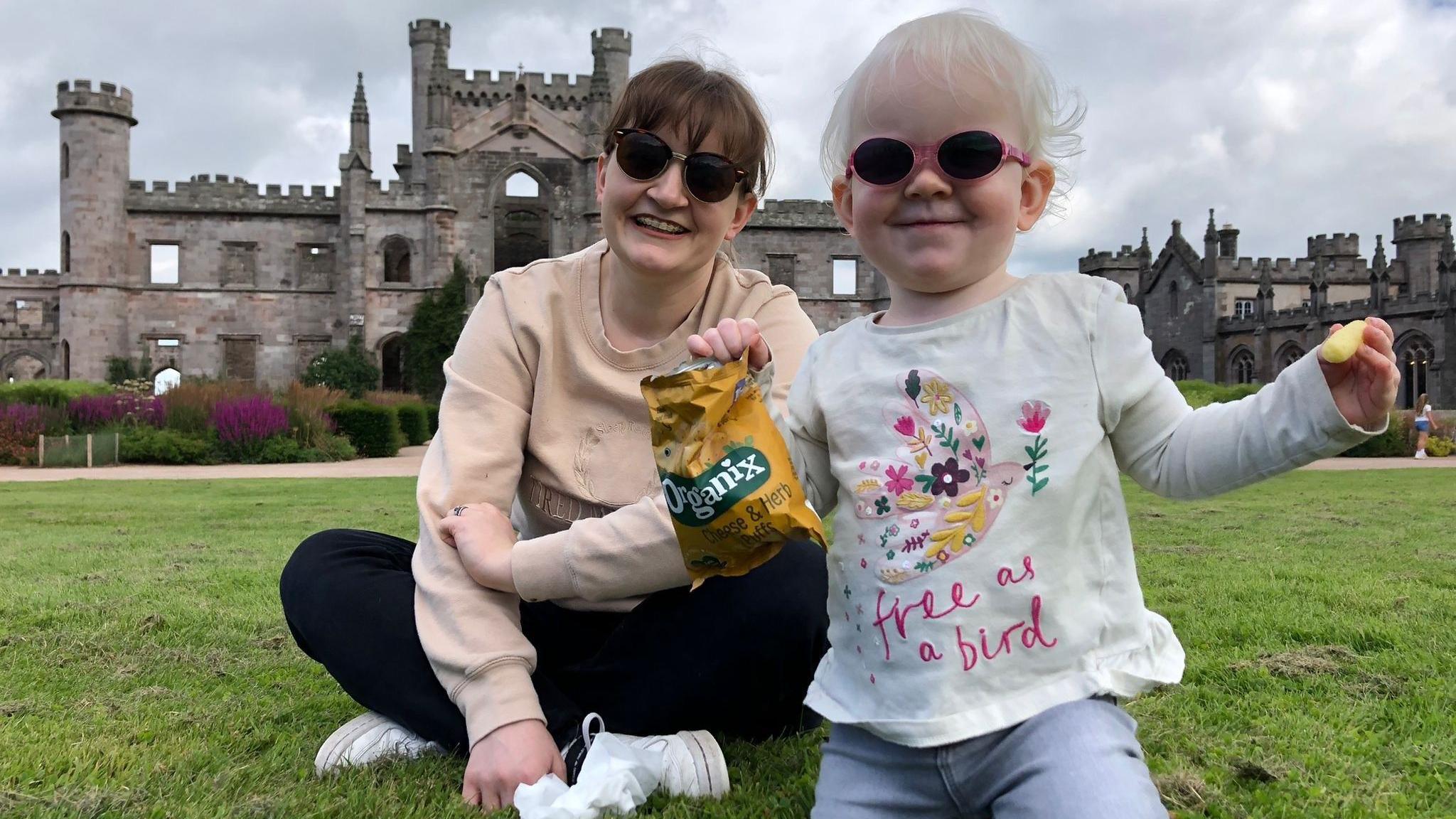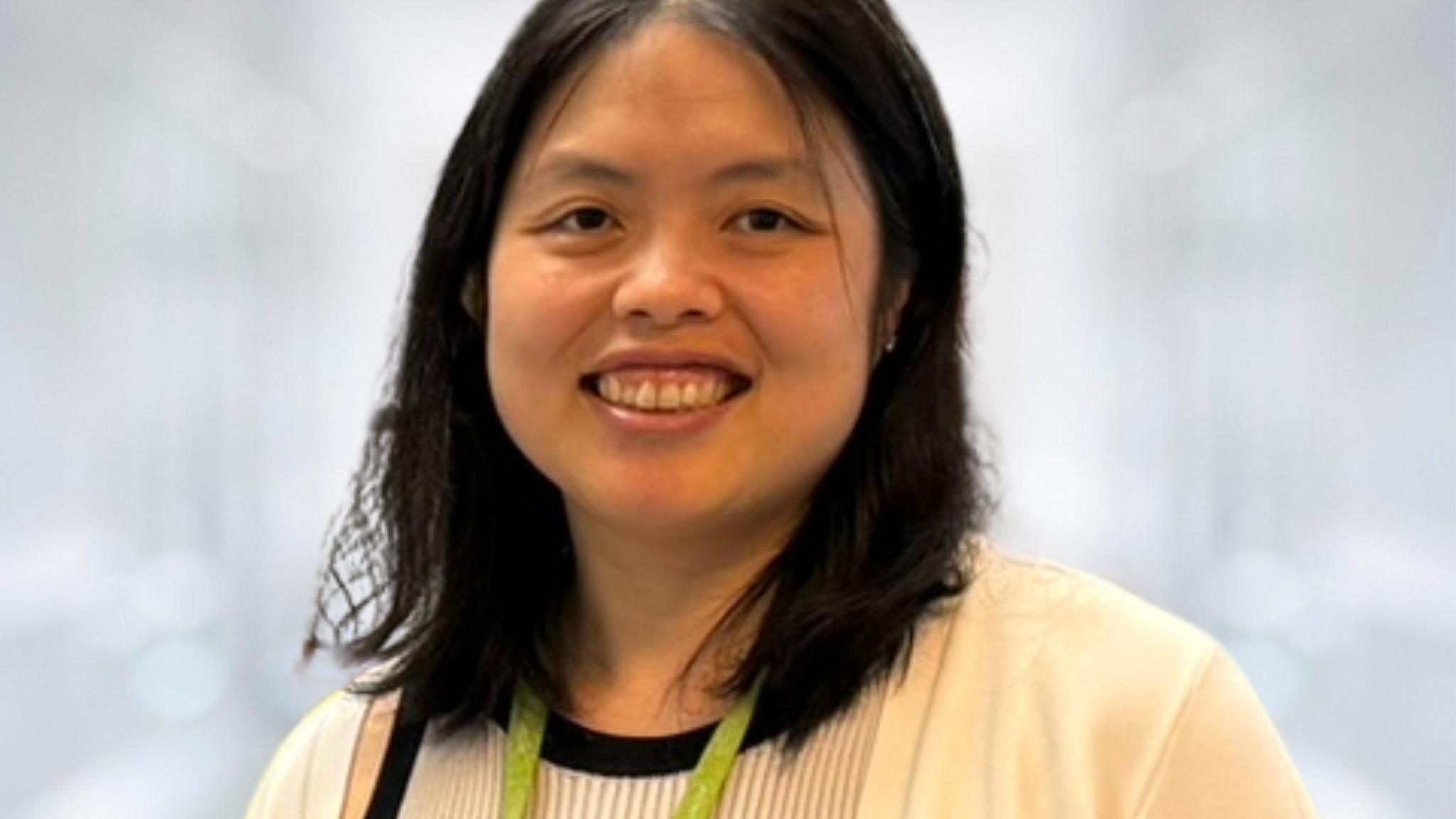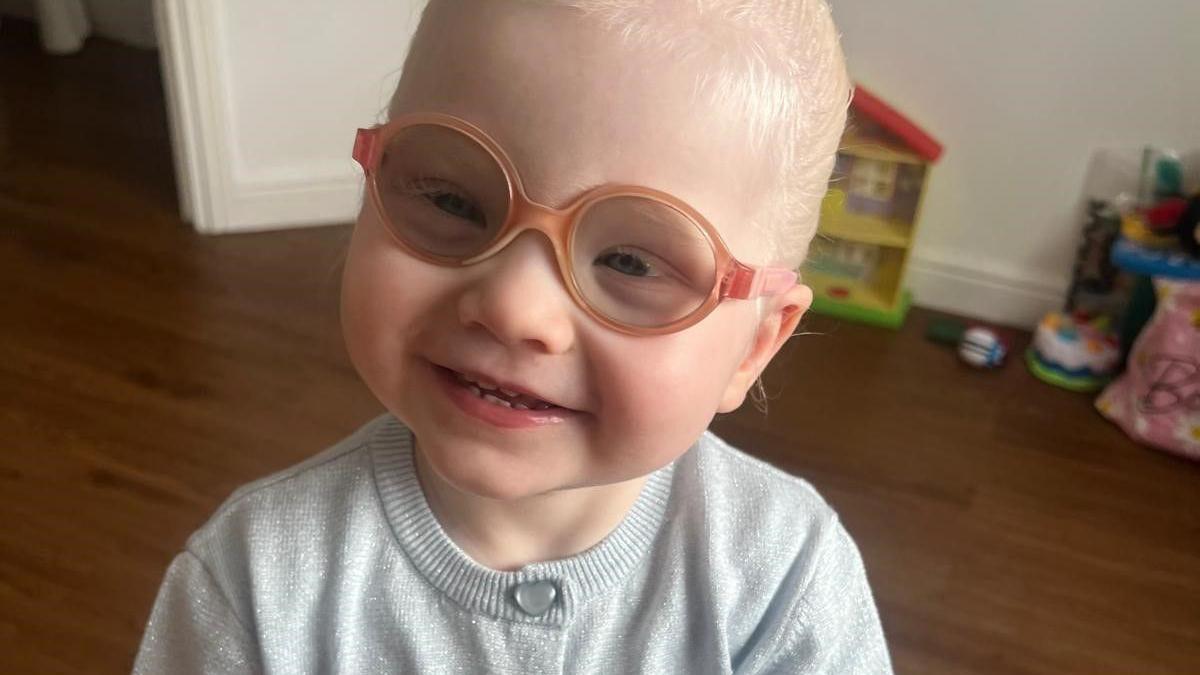Family 'over the moon' with albinism study funding

Amelia is severely visually impaired as a result of albinism
- Published
The mother of a two-year-old girl with albinism has welcomed funding for research into improving eyesight for children with the condition.
Her daughter Amelia is severely visually impaired as a result of albinism.
A research project at the University of Southampton will use over half a million pounds of funding to look at whether Levodopa, a drug commonly used to treat Parkinson's Disease, could improve the eyesight for children like her.
"As a family we are over the moon that the research has been given the go ahead," said Amelia's mother, Abby.
"It's really exciting to imagine how many children could benefit in the years to come."

Dr Helena Lee has been looking at whether replacing the chemical L-DOPA could improve eye development
Albinism affects between one in 12,000 and one in 15,000 people in European countries, and affects the production of melanin - pigment which colours eyes, skin and hair.
The condition is associated with a deficiency of a chemical called L-DOPA, which is essential for the normal development of retinas.
As a result, babies with albinism can have severe sight problems as they grow up.
For years, Dr Helena Lee has looked at whether replacing L-DOPA could improve eye development.
Her research project, called OLIVIA, has been granted £542,000 from the Medical Research Council to investigate whether Levodopa could hold the key if given to children below the age of two.
"We believe we've found a treatment which will help [children with albinism], and this award means we can start testing this in the real world," said Dr Lee.

Two-year-old Raya wears glasses for short-sightedness
Abbey and another parent, Joe, whose daughter also has albinism, have already raised over £43,000 to help support the study.
Joe, whose two-year-old daughter Raya wears glasses for short-sightedness to protect her eyes, completed seven marathons in seven cities in seven days in aid of the University charity, Gift of Sight.
"News of this new funding to allow trials to go ahead is fantastic," he said.
The university said the OLIVIA study, which is set to begin as a small-scale trial with about 10 children, could also pave the way for identifying new therapies for other childhood eye conditions.
Get in touch
Do you have a story BBC Hampshire & Isle of Wight should cover?
You can follow BBC Hampshire & Isle of Wight on Facebook, external, X (Twitter), external, or Instagram, external.